Can not find hard disk(s) (getHardDisk)
-
Add lsblk and lspci -nn output.
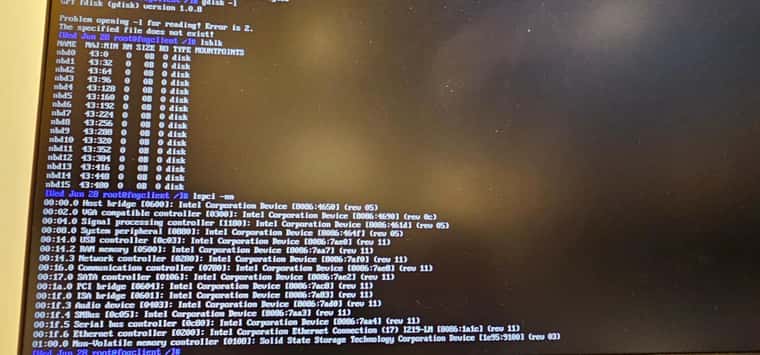
-
@Lementchow This is going to sound absolutely crazy, but is there a hard drive on this machine?
I see the SATA and NVME controllers, but doesn’t look like anything is actually attached to them.
-
This post is deleted! -
@Tom-Elliott I tried booting under windows PE and the hard drive could be found and correctly identified.
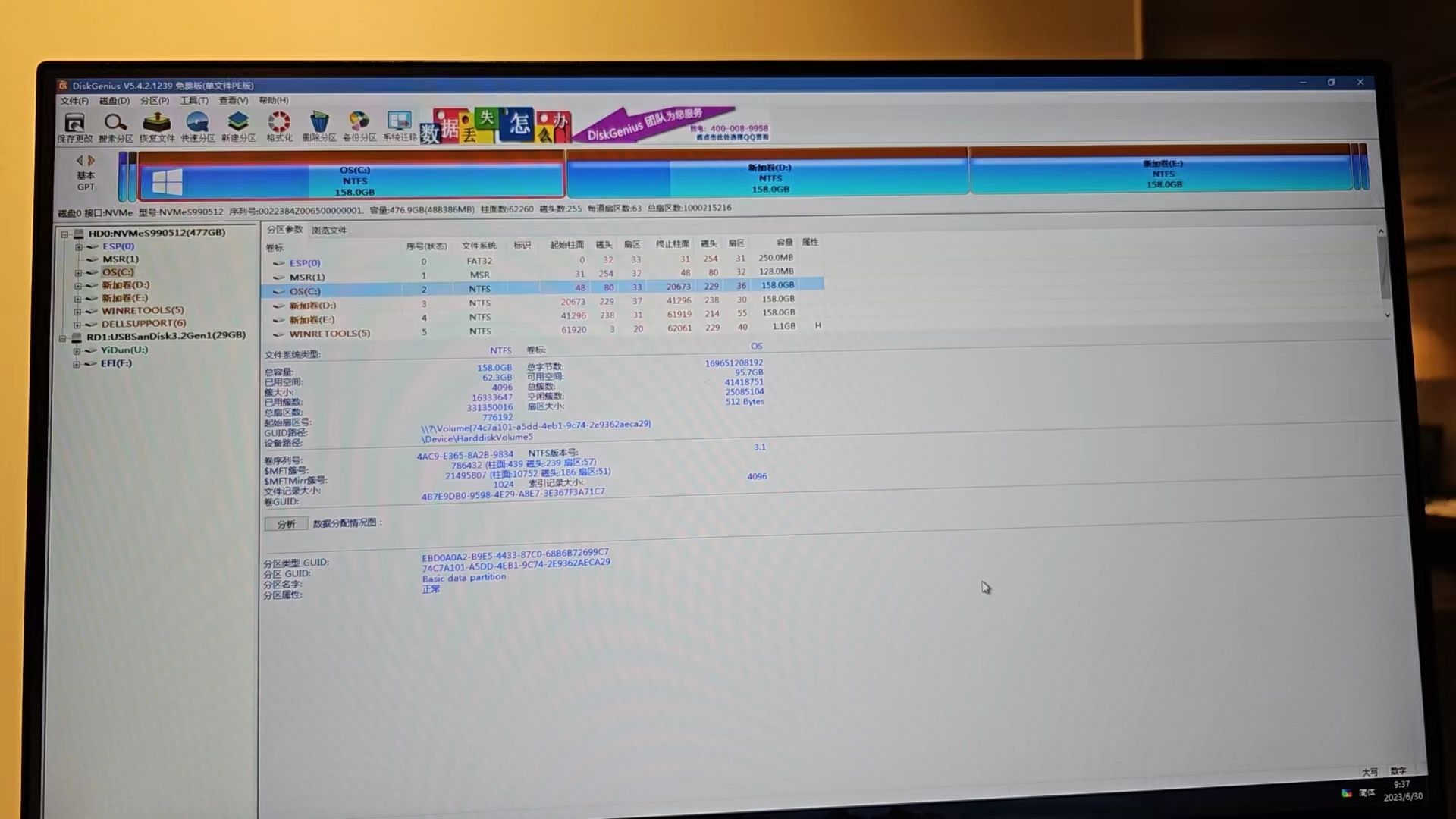
-
@Lementchow So everything is working now as it should?
-
@Sebastian-Roth No, It’s still can not get harddisk, in fog deploy. Something strange.
-
@Lementchow said in Can not find hard disk(s) (getHardDisk):
No, It’s still can not get harddisk, in fog deploy. Something strange.
Ahh, now I see. Somehow got the PE part wrong in your earlier posts.
Have you updated the FOS kernel as suggested? Please boot into a debug session and run
uname -ato make sure it’s running the 6.x kernel. -
@Sebastian-Roth Hi, Please see below.
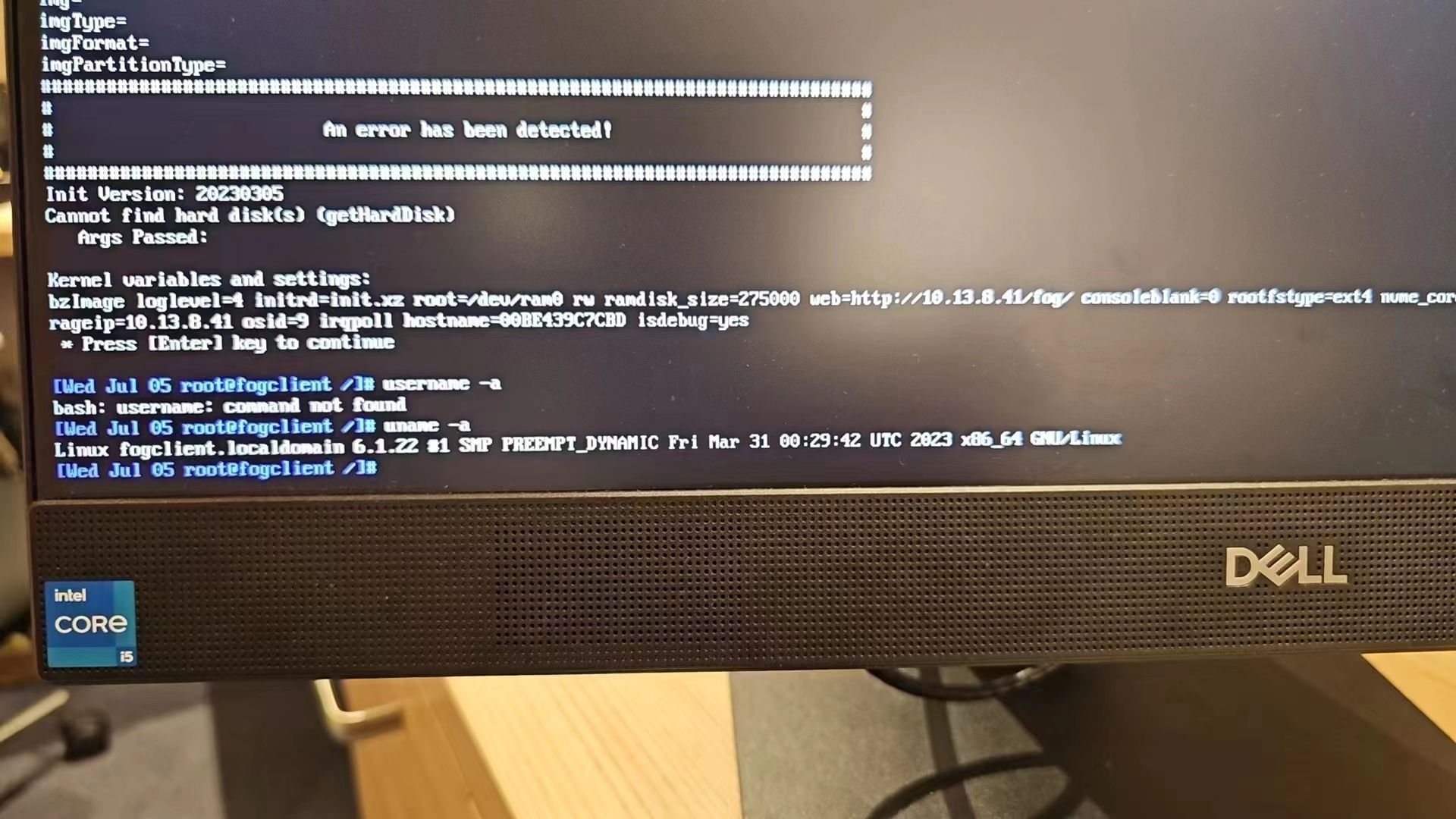
-
@Sebastian-Roth Hi,Maybe you are very busy, I shouldn’t bother you unreasonably, but I really have no other way. I confirm that I have used the 6.1.X kernel now, but I still can’t deploy the system on the NVME hard drive, it seems not to see it, but if I plug in the USB hard drive, it can quickly complete the deployment.

-
@Lementchow What NVMe drive is installed in this machine? Please post brand and model for us to check.
-
@Sebastian-Roth Good Morning. Hope you are doing well. Pls see the post of SSD brand and model.
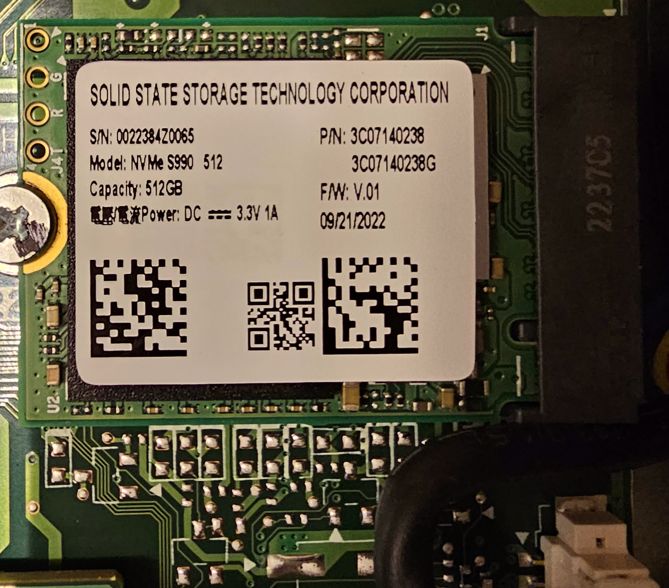
-
@Lementchow Thanks for the picture. Will take a look next week.
-
@Sebastian-Roth Thanks for you time to take this issue.
-
@Sebastian-Roth Thank you for your efforts. Is there any progress? I still stuck here
-
@Lementchow Sorry for the very long delay. I had very little time in the last months and I knew this one needed a bit of time for a good research.
Trying to find out more about this SSD I searched for “3C07140238” as well as “nvme s990 512” and found this is being sold on ebay as “Lite-On S990 512GB M.2 2230 SSD NVMe PCIe”.
There are some interesting details on this in a tech forum: https://forums.anandtech.com/threads/making-use-of-an-old-hp-laptop.2604210/
There is also rumor on the S990 SSDs making trouble in SteamDecks:
https://www.reddit.com/r/SteamDeck/comments/yyh8zd/nvme_drive_doesnt_found_on_steam_os/
https://www.reddit.com/r/SteamDeck/comments/y4goh4/psa_some_ssd_may_not_supported_by_steamos/Now talking about Linux drivers I checked the PCI ID
1e95:9100(picture below) and found that we should have the driver included in our kernel:
https://linux-hardware.org/index.php?id=pci:1e95-9100-126f-2263
https://github.com/FOGProject/fos/blob/master/configs/kernelx64.config#L1123You might want to use some of these commands to see if the Linux
nvmecommands can give you some information on this drive: https://wiki.archlinux.org/title/Solid_state_drive/NVMePS: If you are very keen you might want to send an email to the kernel driver author and ask him about how to dig why this SSD is not working: https://github.com/torvalds/linux/blob/master/drivers/nvme/host/pci.c#L3527
-
Having the same issue on a Dell Latitude 3140. There is no option for RAID, only AHCI and Off. Secure boot is disabled, UEFI security mode set to disabled on PXE/Internal HDD. Updated to the latest FOG dev version, Kernel version 6.1.22.
Clonezilla will recognize the drive, but not the FOG kernel.
-
@lukebarone Do you have time to try to debug this? If yes. Schedule another capture/deploy (doesn’t matter), but before you hit the schedule task button, tick the debug checkbox. Now pxe boot the target computer. After several screens of text you will be dropped to the FOS linux command prompt.
At the FOS linux command prompt, key in
lspci -nn | grep -i sata lspci -nn | grep -i raidLets see what that returns. My bet is that dell still has the settings in there for raid-on it might have just renamed them.
-
@george1421
Don’t see any out. It’s just a blank. -
@divyesh-hash OK lets go about this a bit different then.
At the fos linux command prompt key in
ip a sand get the IP address of the target computer running FOS LinuxNow give root a password with the following command
passwdmake it something simple (like hello) because the password will reset on next reboot.Now that you have both the IP address and root’s password using putty or ssh. Now you can copy and paste text from the screen.
now key in
lspci -knnand copy the entire output and paste it here. There will be a lot of text but it will give us an idea what hardware is installed and the kernel driver responsible for it.Also let check the log file to see if any firmware required notices are published
grep -i firm /var/log/syslog -
@george1421 Here’s the output:
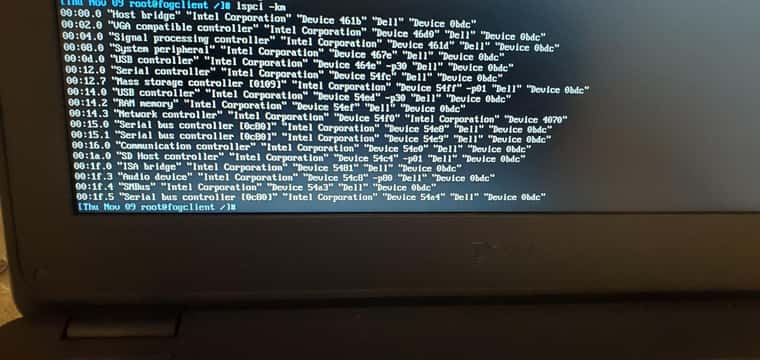
Log file is not there.